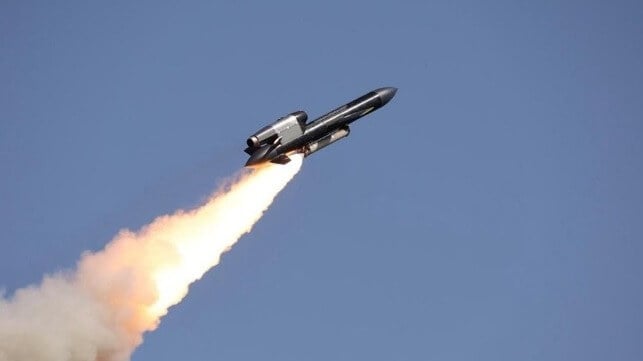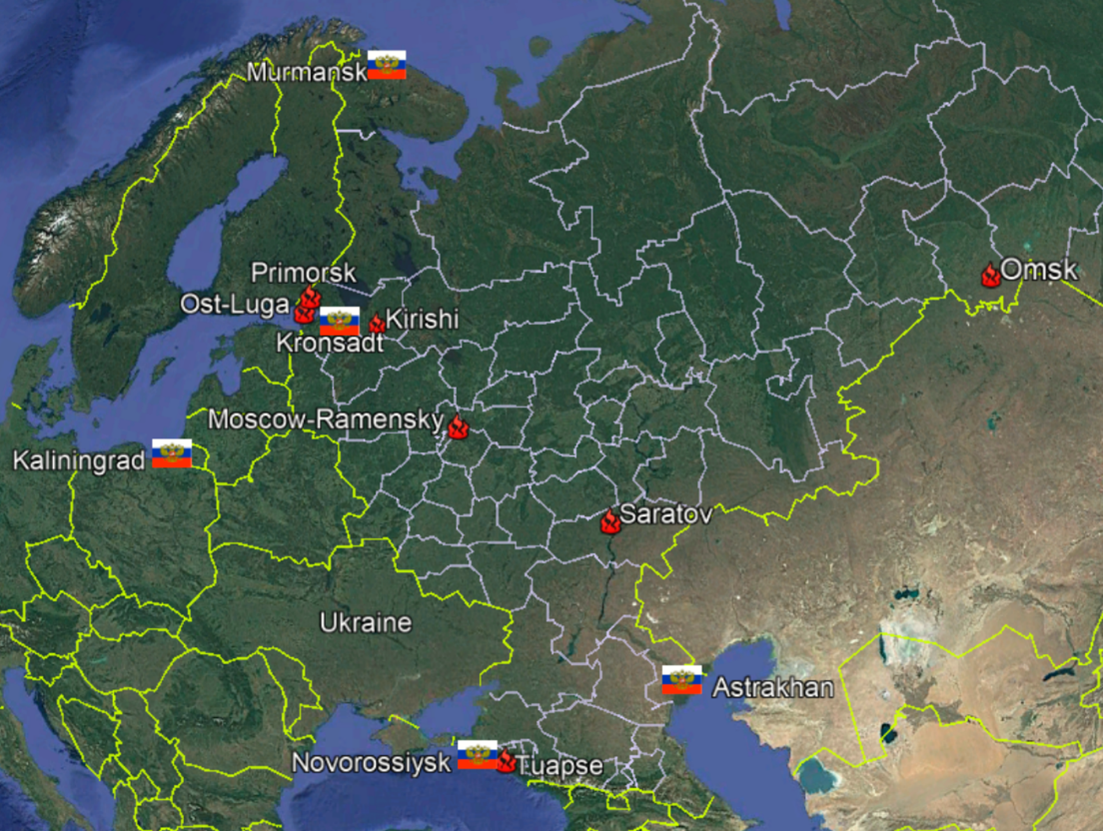Ukrainian Attacks on Russian Port and Oil Infrastructure Intensify

As sanctions pressure on the dark fleet of tankers exporting Russian crude intensify, Russia's oil refining infrastructure is coming under increasingly focused Ukrainian attack.
Saratov and Engels, which sit opposite each other across the Volga River, were attacked on November 3. The main AVT-6 crude distillation unit of the Saratov refinery, the heart of the refinery anda difficult component to replace, was apparently damaged.
The Ukrainians are increasingly targeting distillation units to cause long-term effects; earlier Ukrainian attacks on oil tanks in contrast were good for propaganda, producing lots of fire and smoke, but caused damage which could easily be repaired or bypassed. Moreover, the Ukrainians are coming back to repeat their focused attacks, the Saratov refinery also having been attacked on n September 20 and October 16.
Saratov is one of Russia's largest refineries, and is supposed to be well-protected. It lies about 600 miles east of the likely Ukrainian firing point.
The CDU-6 distillation unit of the Kirishi refinery near Leningrad, another of Russia’s largest, was disabled on October 4, following an earlier attack in September.
On October 31, the Ukrainian attacked the Moscow 'Ring' in the Ramensky District of Moscow Oblast, a complex of pipelines carrying both crude for the Ryazan, Nizhny Novgorod, and Moscow refineries but also finished products such as gasoline, diesel and aviation fuel needed in the war against Ukraine.
All these targets lie within range of Ukraine's existing armory of drones. However, production of Flamingo cruise missiles, after some delays, is now believed to have reached three per day. The system's builder is still in the operational test phase, and has attracted a degree of scrutiny over questions of governance, but in the meantime stocks of the missile are being built up.
Once the Flamingo, with its one ton warhead and range of 1,750 miles, is in service, it will be able to hit the bulk of Russia's oil infrastructure, and will give Ukraine independence of action while the United States withholds supplies of Tomahawk cruise missiles. In particular, the Flamingo will be able to strike the Yamal pipeline at points where pipelines converge, disrupting the supply of product from Urengoy. This network serves both the Omsk oil refinery complex and also crude exports to China through the Caspian Pipeline Consortium (CPC) network.
The Moscow Times reported on September 30 that more than 35% of Russia’s refining capacity had been disabled, equivalent to throughput of about 330,000 tons of crude oil per day.
The primary Russian oil export ports terminals - Novorossiysk on the Black Sea and Primorsk and Ust-Luga on the Baltic - are also being hit. All are about 600 miles from likely firing points in Ukraine, in range of existing Ukrainian drone systems.
Novorossiysk was last attacked on September 24; Primorsk and Ust-Luga were attacked by 200 drones on September 12 and again on October 2. On November 2, the port of Tuapse - on the Black Sea just south of Novorossiysk - was also subject to an intense Ukrainian drone attack, with reports suggesting that an oil terminal and a tanker were hit.
The attacks on these oil export terminals tend not to close down the ports completely, but Lloyds List reports that export volumes are much reduced. Reuters has reported that volumes exported through Baltic ports dropped by 17.1% in September compared to August, and by 23.2% from Black Sea ports.

Principal Russian Navy ports and Oil Targets within Flamingo range (Google Earth Landsat/Copernicus/CJRC)
With existing drones, Ukraine can attack the Baltic Fleet in Kaliningrad, Kronstadt and Leningrad, plus the Caspian Flotilla headquartered in Astrakhan. The advent of the Flamingo will also bring the Northern Fleet bases in Murmansk and the Kola Peninsula within range. The only area which will then remain safe is Vladivostok and the Kozmino oil export terminal in the Far East. But no doubt Ukraine's General Kyrylo Budanov's ever-inventive Defense Intelligence Directorate is devising a cunning plan to address this issue.
